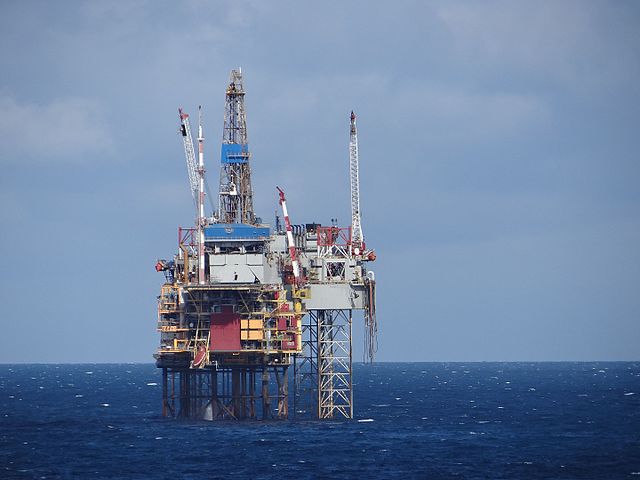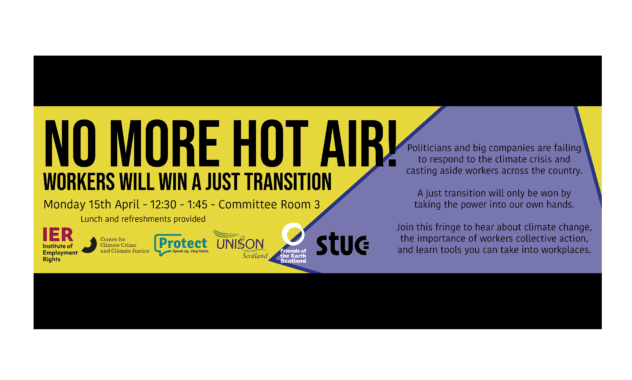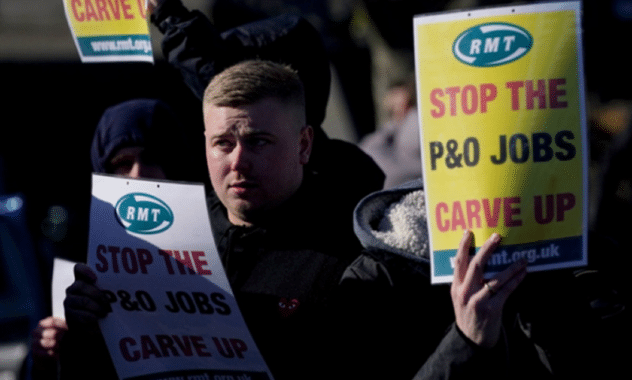RMT members fight to secure decent work for divers working in the renewables industry
Recognising that divers have transferable skills is critical for the transition to renewable energy.

Traff Phillips, Andy O’Neill and Dave Duboff are part of the Divers Organising Group (DOG) at the National Union of Rail, Maritime, and Transport Workers (RMT). They are all divers working inshore and offshore and have been fighting to future proof jobs and secure decent work in the diving industry.
From oil and gas drilling rigs to nuclear power stations, from reservoirs to flood defences, divers work across a range of industries and play an important role in maintaining many essential services. Increasingly many divers are also working in renewable energy.
There is huge inequality across the industry. Inshore divers (working up to 12 miles from the coastline) face much lower pay rates compared to offshore divers. This is because the industry body representing inshore diving contractors class them as unskilled, even though the skills and qualifications needed are virtually identical to offshore. There is also regional inequality in wages.
Divers’ work across a range of different industries, each with its own set of training requirements. Training requirements are not driven by industry needs, rather the commercial interests of training providers. As a result, divers have to get several different qualifications – with nearly identical training content – to perform their jobs. Divers end up spending unnecessary time and money undertaking training. Because they are classed as self-employed, divers have to pay for training themselves.
In recent years, the transition towards renewable energy has put a spotlight on the diving industry, with many divers increasingly working on wind farms. This has also blurred the line between inshore and offshore diving and highlighted the need for more equality across the industry. But issues around training are impeding the transition to green energy. Skilled divers are being forced to retrain or being made redundant. Reps report workers experiencing ever more downgraded terms and conditions. This is pushing workers out of the industry. But divers come from a wide range of backgrounds with transferrable skills which are essential for the transition to renewable energy.
The DOG has been organising to protect the workforce and to ensure that these skills are not lost in the transition, as Duboff explains: “We support the transition to renewable energy, with the caveat that we want to protect the workforce and ensure that these skills are not lost and ensure barriers are removed.”
One of the challenges facing divers is employers’ lack of awareness about inshore diving and a lack of compliance with health and safety regulations. This is particularly difficult to tackle because legislation can’t be enforced until a complaint is made.
The precarious nature of work in the industry is a barrier, as Phillips explains: “Diving is a cutthroat industry. Divers basically live in fear of their job…”
This makes divers scared to report problems and makes change in the industry slow. But according to O’Neill: “This is much more endemic of the industry than a case-by-case basis. This is a culture that needs to change.”
Throughout the COVID-19 pandemic lockdown, the DOG built up strong support for the movement. With many divers out of work, they became more engaged with the struggle and more vocal about the need for industry change. The DOG’s main aim so far has been to develop an agreement with contractors to strengthen terms and conditions, as O’Neill explains: “The mentality of this group…was that a rising tide would raise all ships.”
By achieving a trade union recognition agreement for divers and strengthening awareness about health and safety duties, the DOG hopes to ensure a smooth transition of the workforce and will also lead to transformation in the industry.
But the response from the body representing diving contractors has been far from positive. The industry is fragmented, with a wide range of contractors for the DOG to engage with, so there is no single point of contact or partner to collectively bargain with. This is made even more difficult by the self-employed nature of diving work. With Covid restrictions easing, more divers are also back at work, with less time to spare.
Despite setbacks, big achievements have been made so far. The DOG has organised a lot of divers, got union representation from the RMT, and has also gained political support from both MPs and MSPs on the issue of training transferability between offshore wind and oil and gas industries. As Phillips explains: “What we’ve achieved in a year is absolutely amazing. We have the great beginnings of a coming together…and we’ve got loads of people to join the RMT.”
Now the DOG is ready to start negotiating with contractors and clients individually at the local level, and consider legal pathways for action.
Researched and written for the TUC by the Global Labour Institute.







